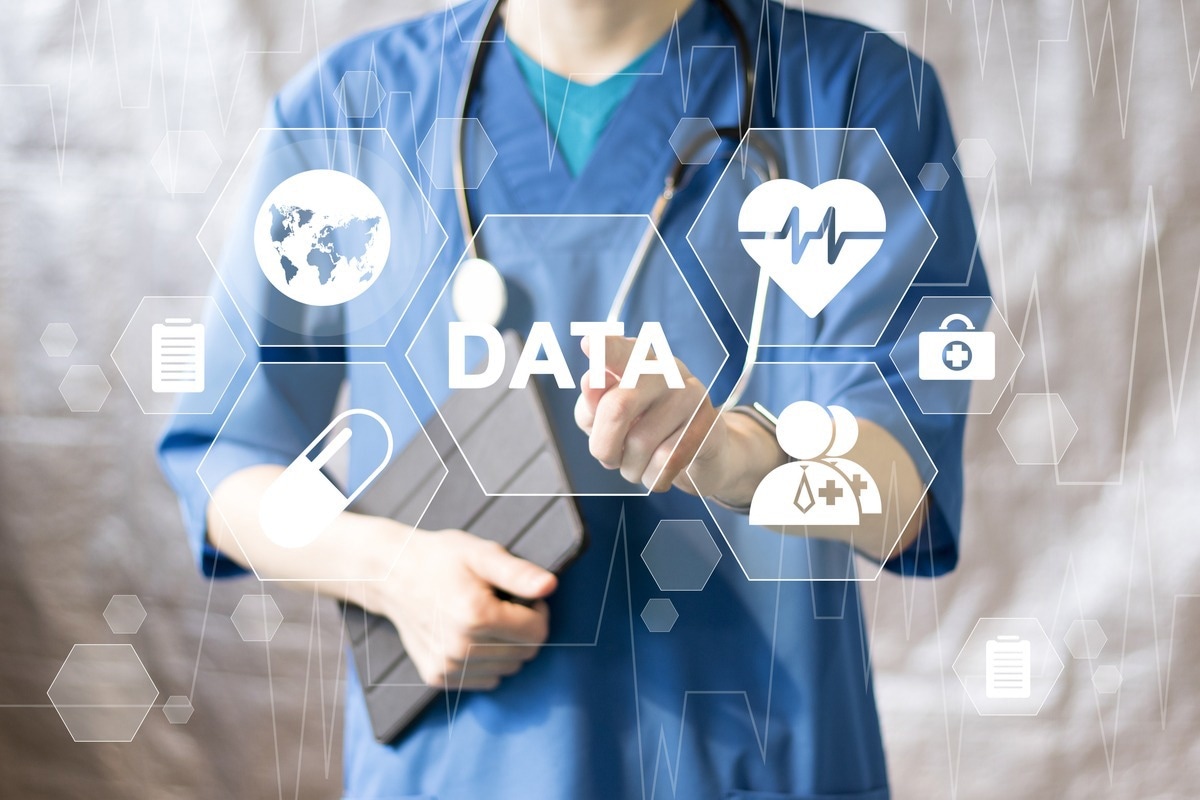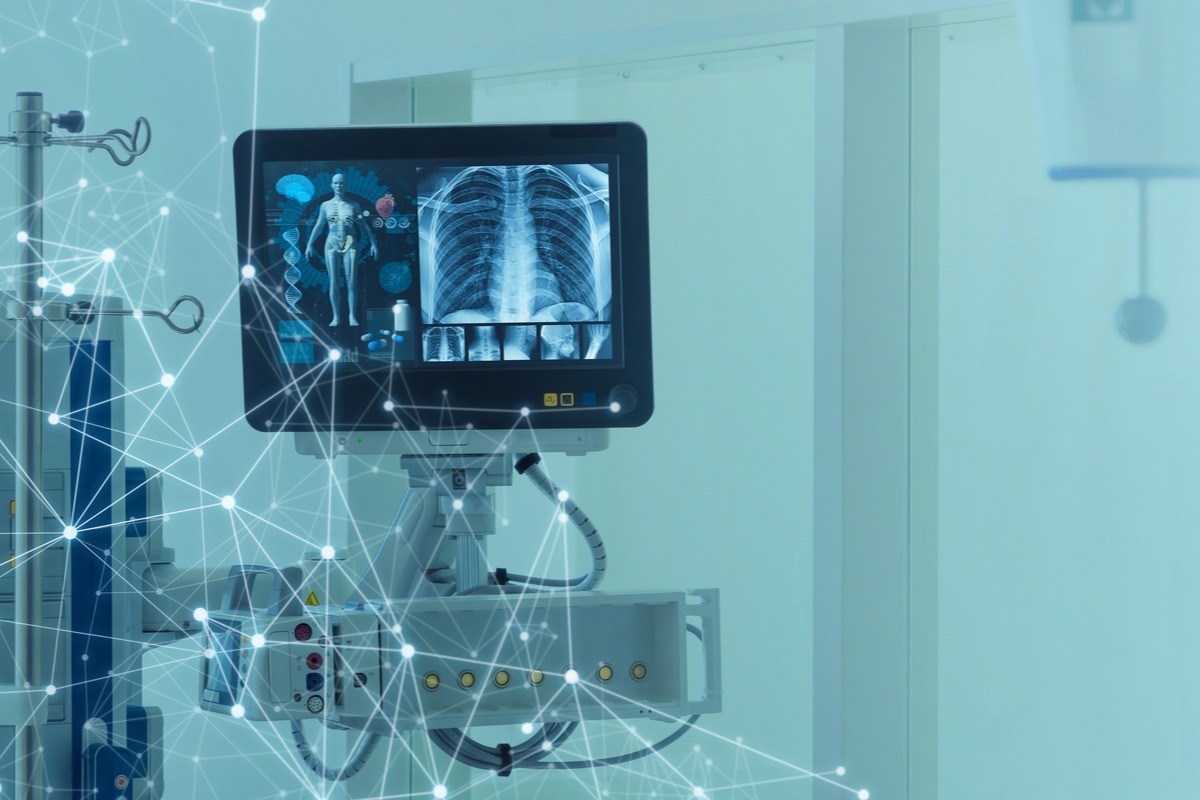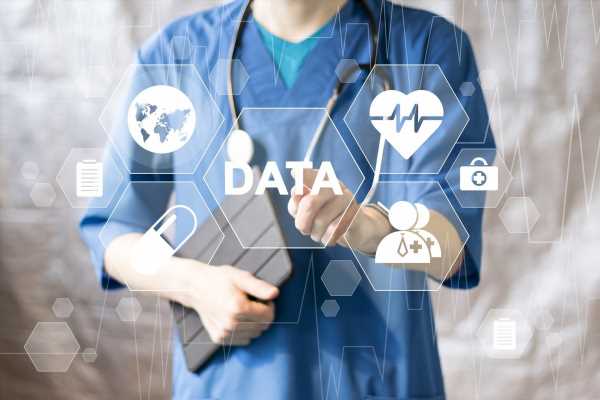What is big data in healthcare systems?
Importance of big data analysis in the healthcare system
Challenges associated with procuring big data for future health systems
How can digital data change the future of the healthcare system?
References
Further reading
It is not surprising that the healthcare industry generates an enormous amount of data. Although previously most of the data were stored in the form of hard copies, currently, digital systems are utilized to store these more efficiently. Scientists believe that the massive quantity of collected data could efficiently aid in making important clinical decisions, ease disease surveillance, and help frame policies related to population health management.

Image Credit: MaximP/Shutterstock.com
It is important to infer meaningful insights from the available data. These insights could present a greater opportunity for better healthcare outcomes. Scientists have stated that new digital technologies can accelerate the process of turning data into insights. Some tools associated with uncovering the power of medical data are machine learning and integrated platforms, data analytics, and digital health solutions.
What is big data in healthcare systems?
In August 2012, the US Congress defined big data as "large volumes of high velocity, complex, and variable data that require advanced techniques and technologies to enable the capture, storage, distribution, management and analysis of the information."
According to a report, the US healthcare system generates a skyrocketing amount of data that might reach the zettabyte scale or even the yottabyte level within a few years. In healthcare domains, the term "big data" refers to all electronic health data, which are so complex and large that they cannot be managed or processed using traditional software or hardware systems. Additionally, common data management tools and techniques do not have the capacity to manage big data.
"Big data" include the complete set of data related to a patient, for instance, clinical data from Computerized Physician Order Entry (CPOE), electronic patient records (EPRs), handwritten prescriptions, medical imaging, insurance, administrative data, and machine/sensor-generated data. Big data also contains less medical-specific information, such as blogs, social media posts, Twitter feeds or tweets, web pages, articles from medical journals, news feeds, and many more different types of information.
Big data scientists stated that discovering the associations and establishing a robust pattern or trends within a vast amount of data generates immense opportunities to save a life in a cost-effective manner. Analyzing big data generated from the healthcare industry provides insights for making better-informed decisions.
Importance of big data analysis in the healthcare system
One of the key advantages of digitizing the big data in the healthcare industry is that it effectively connects data generated from a single physician's office to multiple-provider groups to large hospital networks and other healthcare facilities. Analysis of this enormous volume of data provides a potential opportunity to diagnose diseases at their early stage when they can be treated more effectively.
Analysis of these enormous volumes of data provides insights for better managing population health and quick detection of healthcare frauds. Big data analytics addresses numerous questions based on the historical data; for instance, the data could help predict patients more likely to benefit from surgery.

Image Credit: metamorworks/Shutterstock.com
Big data analytics can also predict the length of hospital stay, patients who might face complications post-surgery, and individuals who could be at risk of sepsis or other hospital-acquired complications (e.g., susceptible to methicillin-resistant Staphylococcus aureus infection), and many more such important issues. Big data analysis also helps foresee disease progression and the influence of comorbid conditions on the disease outcome.
Challenges associated with procuring big data for future health systems
Combining information from a vast range of disconnected and diverse sources is difficult. Healthcare data fragmentation has been a big problem in the US healthcare system. Thousands of healthcare facilities use different IT platforms that follow different standards and privacy controls. Combining all these data in a single system is extremely challenging.
Currently, approximately 15% of healthcare facilities globally are suitably equipped to make quick data-driven decisions. Some key barriers to the digital transformation of healthcare are the scarcity of properly integrated infrastructures and information silos, incompatible systems or data, lack of adequate funding, concerns about data security, and inadequately skilled operators.
How can digital data change the future of the healthcare system?
McKinsey and Company, a global management firm, estimated that big data analysis could save more than $300 billion per year in US healthcare. Data analysis could reduce around 8% of national healthcare expenses. Primarily big data analysis reduces inefficiencies associated with the healthcare system.
The advancements in healthcare tools, particularly laboratory-based tools, have reduced operational costs and improved healthcare outcomes. Digital solutions and advancements in analytical tools have immensely helped laboratory technicians in the decision-making process in an efficient manner.
Data connectivity enhances the power of healthcare decisions via big data analysis. Another utility of data digitalization is that the history of the past ailment and other important information about a particular patient is instantaneously available to the physician, which helps them devise a proper treatment strategy.
The current coronavirus disease 2019 (COVID-19) pandemic has underscored the importance of reliable data exchange between healthcare facilities and countries. The exchange of data has unquestionably accelerated the process of providing healthcare solutions through telemedicine.
References
- Unlocking the power of data. (2022) [Online] Available at: https://diagnostics.roche.com/global/en/article-listing/unlocking-the-power-of-data.html
- Digital Health. (2022) European Federation of Pharmaceutical Industries and Associations. Online] Available at: https://www.efpia.eu/about-medicines/development-of-medicines/digital-health/
- Harvard Business Review. (2019). Leading a New Era in Health Care: Innovation through Data-Driven Diagnostics. [Online] Available at: https://hbr.org/sponsored/2019/07/leading-a-new-era-in-health-care-innovation-through-data-driven-diagnostics
- Raghupathi, W. and Raghupathi, V. (2014) Big data analytics in healthcare: promise and potential. Health information science and systems, 2(3). https://doi.org/10.1186/2047-2501-2-3
Further Reading
- All Healthcare Content
- Healthcare Systems Around the World
- What is the Role of Regulatory Bodies in Healthcare?
- How is the ‘omics’ Revolution Changing Healthcare?
- Primary Healthcare Providers
Last Updated: Jun 22, 2022

Written by
Dr. Priyom Bose
Priyom holds a Ph.D. in Plant Biology and Biotechnology from the University of Madras, India. She is an active researcher and an experienced science writer. Priyom has also co-authored several original research articles that have been published in reputed peer-reviewed journals. She is also an avid reader and an amateur photographer.
Source: Read Full Article
